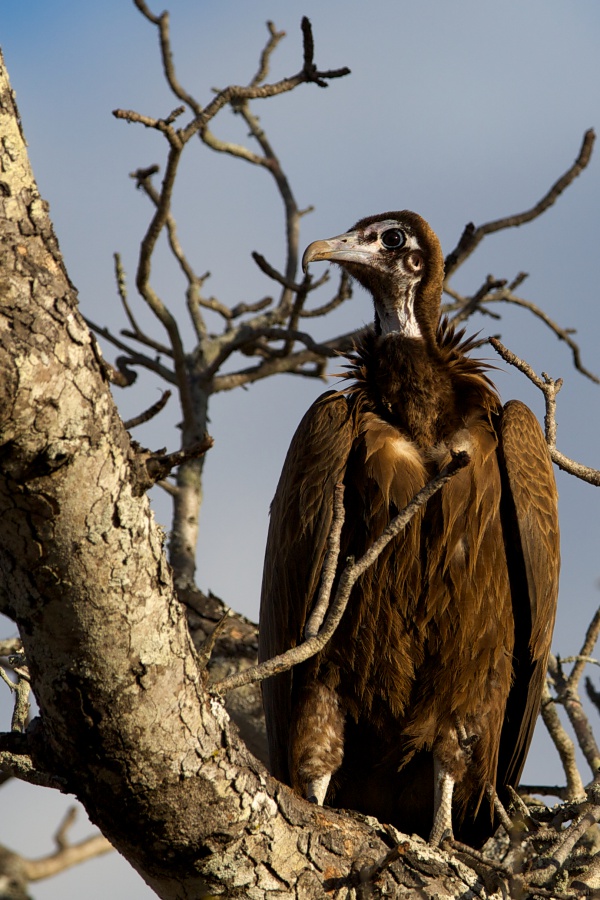Facts About Hooded vulture
The hooded vulture, a small species of Old World vulture, roams the skies over sub-Saharan Africa. Recognizable by its dark brown feathers, slender bill, and the fluffy "hood" of downy feathers on its neck, this bird is an adept scavenger, feeding on the remains of both wild and domestic animals.
Unfortunately, not all is well for the hooded vulture. While some populations remain stable, others are in serious decline, facing threats like poisoning, hunting, habitat destruction, and dangerous collisions with power lines. The International Union for Conservation of Nature (IUCN) has listed the hooded vulture as "critically endangered" highlighting the urgent need for conservation efforts.
The name "hooded vulture" originates from the bird's distinctive neck feathers that resemble a hood. Its scientific name, Necrosyrtes monachus, hints at its scavenging lifestyle. These vultures build their nests out of sticks in trees across Africa and typically lay just one egg. They tend to stay in one area rather than migrating, spreading out across the continent.
In their role as nature’s cleanup crew, hooded vultures eat carcasses, waste, and even insects. They often come into close contact with humans, earning nicknames like "garbage collectors" in some areas. Unfortunately, these interactions are not always beneficial for the vultures. They face numerous threats, including poisoning, hunting for traditional medicine and food, and the loss of their natural habitats.
Conservation efforts are underway to help protect these birds. International agreements aim to safeguard them, but more work is needed to regulate harmful substances and practices that threaten their survival. The hooded vulture's numbers are declining rapidly in many areas, partly due to cultural practices that involve using vulture parts for spiritual and medicinal purposes.
To save these critically endangered birds, it’s crucial to monitor their populations closely and enforce regulations that minimize harmful activities. With concerted efforts, there is hope for the hooded vulture's future.

 Guinea
Guinea